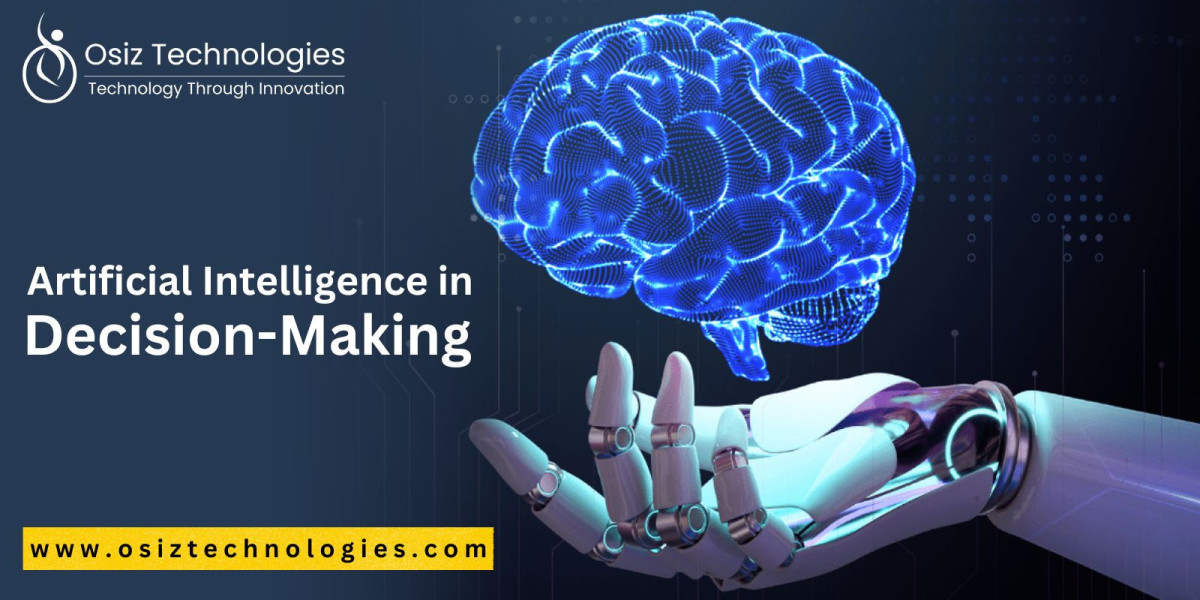AI in Decision-Making
In today's rapidly evolving world, the importance of artificial intelligence cannot be overstated. As businesses and organizations grapple with increasingly complex challenges, AI emerges as a critical tool for driving innovation, efficiency, and strategic decision-making. Artificial Intelligence (AI) in decision-making employs advanced algorithms and data analytics to optimize the process and provides valuable insights. By leveraging vast amounts of data, AI enables automation of routine tasks, personalization of recommendations and proactive risk management. Also, AI-powered decision support systems not just offer real-time insights to aid human decision makers, but also ensure adaptability and improvement over time with continuous learning algorithms. Overall, AI in decision-making enhances efficiency, innovation and strategic advantage across industries.
Benefits Of Artificial In Decision-Making
There are numerous benefits of utilizing AI in decision-making across various domains. Here are some key advantages:
Data-Driven Insights: AI can analyze vast amounts of data quickly and efficiently, providing valuable insights that may not be apparent through traditional analysis methods.
Predictive Analytics: AI algorithms can forecast future trends and outcomes based on historical data patterns. By leveraging predictive analytics, organizations can anticipate potential scenarios and make proactive decisions to capitalize on opportunities or mitigate risks.
Optimization and Efficiency: AI-powered optimization algorithms can streamline processes and improve efficiency by identifying the most optimal solutions to complex problems. This leads to cost savings, resource optimization, and better resource allocation.
Personalization: AI enables personalized decision-making by analyzing individual preferences, behaviors, and historical interactions. This personalization enhances customer experiences, tailoring products, services, and recommendations to meet specific needs and preferences.
Automation of Routine Tasks: AI can automate routine decision-making tasks, freeing up human resources to focus on more complex and strategic activities. This automation reduces human error, speeds up processes, and increases overall productivity.
Enhanced Decision Support Systems: AI-powered decision support systems provide real-time insights, recommendations, and forecasts to aid human decision makers. These systems augment human intelligence, helping users make more informed and timely decisions.
Risk Management: AI can identify and mitigate risks by analyzing data patterns and detecting anomalies or potential threats. This proactive approach to risk management enables organizations to minimize losses and safeguard against unforeseen events.
Scalability: AI systems can scale to handle large volumes of data and decision-making tasks, making them suitable for businesses of all sizes. Whether it's processing customer inquiries, analyzing market trends, or optimizing supply chains, AI can adapt to meet growing demands.
Final Thoughts
As AI continues to evolve, staying informed about the latest advancements and trends of AI in decision-making will be essential for businesses and organizations seeking to leverage its transformative potential. To incorporate such a futuristic solution into your business, connect with Osiz Technologies. As a leading AI development company, we keep tabs on extensive cutting-edge technology. Whether it's harnessing data-driven insights, implementing machine learning algorithms, or optimizing decision-making processes with AI-driven solutions, Osiz can provide the expertise and support needed to navigate the rapidly evolving landscape of AI technology.








